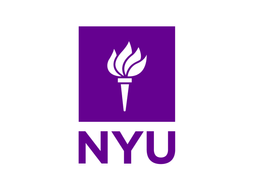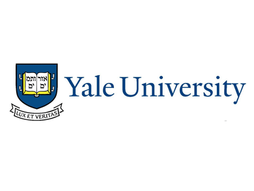Envirothon - 10 Tips to Help You Win
Envirothon is an environmental education program and competition that brings together high school students from various countries to learn and compete in the fields of natural resource management and environmental science. The NCF-Envirothon mission is to educate students about the environment and conservation of natural resources through hands-on outdoor experiences, academic study and collaborative competitions. It aims to increase students' awareness and knowledge of the environment, while also promoting critical thinking, problem-solving, and teamwork skills.
Where is Environthon 2023 being hosted?
This year’s competition is being hosted by Mount Allison University in Tantramar (Sackville), New Brunswick, Canada from 23 through 29 of July.
What is the theme of 2023 Environthon?
Adapting to a Changing Climate, being the theme of this year’s competition where students will learn about factors contributing to a changing climate, the effects of these changes on the environment and natural resources in their regions. Envirothon hopes to teach students management strategies for mitigating and adapting to a changing climate, and the roles of innovative technologies and programs in responding to local and global changes.
Who is eligible to participate?
Those eligible to participate must be high school aged students (grades 9-12). Students will form teams where team members must attend the same school or be a member of the same club or community organization.
What is the cost of participation?
The cost ranges between $150-$200 depending on the time of registration (wherher you incur a late fee).
10 Tips to Win Envirothon
Although specific guidelines and tips for winning Envirothon may vary from year to year, here are 10 general tips that can help participants increase their chances of success:
1. Develop a Strong Foundation in Environmental Science
Building a solid understanding of key environmental concepts and scientific principles is crucial. Invest time in studying topics such as ecology, biology, geology, and environmental policy. Utilize various resources such as textbooks, scientific journals, government publications, and reputable websites and university publications to gather information on the competition topics. Take notes, create study guides, and review them regularly.
2. Master Local and Regional Environmental Issues
Stay informed about current environmental issues, policies, and scientific advancements. Read news articles, follow environmental blogs, and join relevant online communities to remain up to date with the latest information, such as the National Conservation Foundation website. In addition, study local ecosystems, habitats, endangered species, and human impacts specific to your region to maintain an understanding of the unique environmental challenges and issues in your local area or region.
3. Familiarize Yourself with the Five Main Subject Areas
Familiarize yourself with the five main subject areas of the competition: soils and land use, aquatic ecology, forestry, wildlife, and current environmental issues. Develop a comprehensive understanding of each topic. By studying these topics, students will gain a well-rounded understanding of the various interconnected elements that shape our natural world. In addition, students who are well versed in each subject area have a better competitive edge as they will be judged on their knowledge of the topic as well as their presentation skills.
4. Create a Team and Build a Network
Collaborating with like-minded individuals can enhance your learning experience. Form a team and/or study group, at your local participating university, with fellow participants to share knowledge, exchange ideas, and engage in group discussions (Washington State example). Assign specific topics to each team member so that you can cover a wide range of subjects effectively. Build a Network by connecting with environmental professionals, scientists, and educators in your community. Seek their guidance, ask questions, and participate in workshops or seminars related to environmental science.
5. Practice critical thinking and problem-solving skills
Envirothon competitions often require participants to analyze complex environmental scenarios and propose innovative solutions. Develop your critical thinking and problem-solving abilities through practice exercises and case studies. Here are a few resources that can help you practice your critical thinking and problem-solving skills: The Environthon Resources, Khan Academy, The Foundation for Critical Thinking, and TEDEd Lessons.
6. Participate in mock competitions
Engage in mock Envirothon competitions to simulate the real event and experience the pressure and time constraints. Mock competitions can help you identify your strengths and weaknesses, refine your strategies, and improve your performance. Create sample questions and set a time limit to practice answering questions under pressure. Evaluate your performance and identify areas that need improvement.
7. Know the rules and scoring criteria
Study the rules and scoring criteria of the Envirothon competition thoroughly. Understanding how points are awarded and the specific requirements of each section will help you strategize and allocate your time effectively during the competition. Take a look at the The Official 2022 NCF-Envirothon Annual Competition Scoresheet for reference.
8. Improve Communication and Presentation Skills
Effective communication is key during the oral presentation and interview sections of Envirothon. Practice public speaking, develop your presentation skills, and learn to articulate your ideas clearly and concisely. Practice delivering concise, well-structured presentations that cover the key points of each subject area.
9. Focus on Fieldwork and Hands-on Experience
Gain practical experience by conducting fieldwork, participating in environmental research projects, and volunteering with environmental organizations. Hands-on experience will deepen your understanding and allow you to apply theoretical knowledge to real-world situations.
10. Stay Calm, Confident, and Manage Time Effectively
On the day of the competition, stay calm and confident. Trust in your preparation and knowledge. Listen carefully to the questions, think before answering, and articulate your responses clearly and concisely. Envirothon competitions are intense, and time management is crucial. Stay organized, create a study schedule, and prioritize your preparation. Maintain focus, stay motivated, and avoid procrastination.
Please note that while these tips provide general guidance, it is essential to review the specific rules, requirements, and recommendations provided by the organizers of the Envirothon competition you are participating in. Remember, winning isn't everything. Participating in Envirothon offers a valuable opportunity to learn and grow as an environmental steward. Enjoy the experience and embrace the knowledge gained along the way.
If you’d like to supplement your competitive experience with independent research, consider applying to Horizon’s Research Seminars and Labs!
This is a selective virtual research program that lets you engage in advanced research and develop a research paper on a subject of your choosing. Horizon has worked with 1000+ high school students so far and offers 600+ research specializations for you to choose from.
You can find the application link here
If you are interested in doing university-level research in environmental science, biology, and marine science, then you could also consider applying to the Lumiere Research Scholar Program, a selective online high school program for students founded with researchers at Harvard and Oxford. Last year, we had over 2100 students apply for 500 spots in the program! You can find the application form here.
Samantha Davenport is a socio-cultural anthropologist with experience in qualitative and ethnographic research. With a deep passion for understanding diverse cultures and societies, she has dedicated her career to conducting extensive field research and analysis amongst a variety of research projects. Samantha is driven by a desire to promote cultural understanding and bridge gaps between different groups.
Image Source: Envirothon logo











